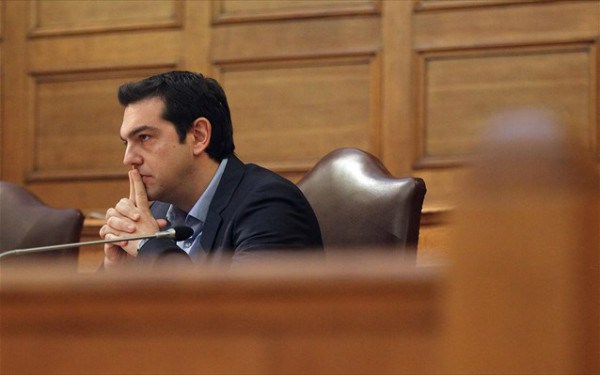After a disastrous year Greece’s prime minister may yet win re-election. But the fire has gone
The Economist
A RECENT cartoon in Kathimerini, a Greek newspaper, depicts Alexis Tsipras, the prime minister, waking up in a cold sweat. “I had a nightmare!” he exclaims to his partner. “What was it?” she asks. “That I was re-elected!” he replies.
Poor Mr Tsipras. Swept to power on a wave of anti-austerity hope in January, for six months he and his leftist government captivated the world as they battled to convince euro-zone partners to lend Greece more money without the tough conditions of two previous bail-outs, saw banks forced to close and came close to losing the euro.Today Mr Tsipras cuts a diminished figure. He capitulated before Greece’s creditors and signed a third programme under duress. The country still lives under capital controls. The economy is even more of a wreck. His party has split. The demagogue who once promised to upend Greek politics seems worn out. In calling an election on September 20th to renew his mandate, Mr Tsipras offers an awkward proposition for Greek voters: that they should choose him to implement the bail-out he denounces. Little wonder the campaign is dull. Watching this spectacle after the high drama of the summer is like sitting through a B-movie after a session of Hitchcock, says George Pagoulatos, a professor at the Athens University of Economics and Business.
Mr Tsipras is largely the author of his fate. He demonstrated diplomatic and economic ineptitude from the start. His pick for finance minister, Yanis Varoufakis, a vain economics professor with an unparalleled ability to inspire loathing in his negotiating partners, was only the first of his many missteps. The referendum he called in June on a bail-out offer that would expire by the time of the vote made little legal sense and triggered the capital controls that set back Greece’s fragile recovery; soon afterwards he was obliged to sign a much tougher deal. Yet voters cheered his defiance of the German imperium. For a moment it seemed as if Mr Tsipras could lead Greeks anywhere—including, perhaps, out of the euro zone and even the European Union.
One useful truth has emerged from this wild ride: that Greece’s euro membership is incompatible with the anti-austerity message Syriza once peddled. But it was a costly experiment. The economy may shrink by around 2% this year, after returning to growth in 2014 (output has shrunk by a quarter from an admittedly unsustainable pre-crisis level). Unemployment, which had been dribbling down from a high of nearly 28%, is creeping up again. Capital controls are suffocating businesses, particularly importers. Taxes will soon go up. Many Greeks now talk of their suffering as another historical calamity to be endured, like occupation by the Turks and the Nazis.
Polls show Syriza neck-and-neck with its rival, the centre-right New Democracy. But in office neither party will have much room for manoeuvre. The bail-out sets the parameters for policy. An ever-vigilant euro zone, scorched by the experiences of this year’s negotiations, will pounce on the first sign of deviation from the path Greece has agreed to follow in exchange for its rescue funds. Coalition partners will act as a further check on adventurism.
With a lot less at stake in this election, the candidates have been reduced to making personal jabs. New Democracy’s leader, Evangelos Meimarakis, an affable old-timer, charges Mr Tsipras with reckless incompetence. Mr Tsipras’s pitch is that of the heroic failure, who fought hard for his country but could not overcome the mighty Angela Merkel and her euro-zone factotums. He adds that Mr Meimarakis’s party has not been cleansed of the corrupt habits that marked its recent turns in office. But that is an old line, and anyway ignores the reality of Syriza’s brief term: it turns out that the new party is as attached to the Greek traditions of clientelism and patronage as the old ones were.Is Greece thus condemned to an eternity of economic drudgery? Not necessarily. There are lots of good things on offer for the next government should its creditors consider it to be behaving, notes Mujtaba Rahman, at the Eurasia Group, a consultancy. These include public funds to recapitalise the battered banks, inclusion in the European Central Bank’s quantitative easing scheme and the biggest prize of all: a restructuring of Greece’s public debt, probably through an extension of maturities.
Whatever government emerges from the election will therefore have good reason to get moving on the many reforms it must enact before the bail-out’s first review later this year. One observer who has discussed the bail-out with the economics teams of the main parties says it is hard to tell them apart. Even Mr Tsipras has softened his tone towards its provisions (although if Syriza loses, it might return to hell-raising in opposition).
Trouble ahead
The bigger battles will come next year, when the austerity implied by the bail-out’s fiscal targets start to bite and reform fatigue sets in. Tough battles with interest groups such as farmers lie ahead. None of the stewards of previous programmes has come anywhere close to implementing reforms properly. And today, says Wolfango Piccoli of Teneo, a risk-analysis firm, the Greek bureaucracy is, if anything, even less capable of executing reforms than in the past. Slippage seems inevitable, although the absence of large debt repayments before next July should at least provide respite from the question of Grexit.
If he wins re-election, Mr Tsipras will find himself in precisely the same position as in January: overseeing a broken economy and relying on rescue funds. He will need to draw on serious reserves of statesmanship to manage a controversial bail-out that will hurt before it heals, without succumbing to the temptations of populism. That will be neither dream nor nightmare, but the prosaic reality of governing a troubled country that has never been in a position to afford the indulgences of radicalism—least of all now.









